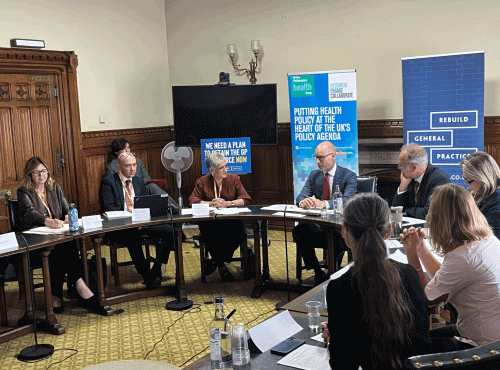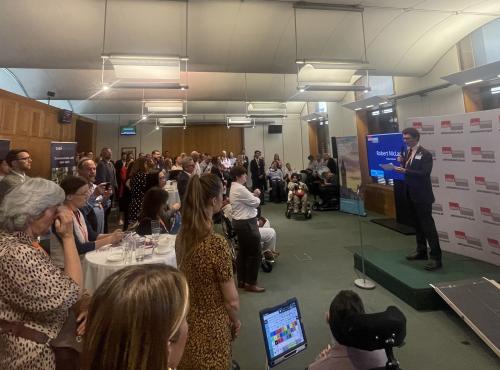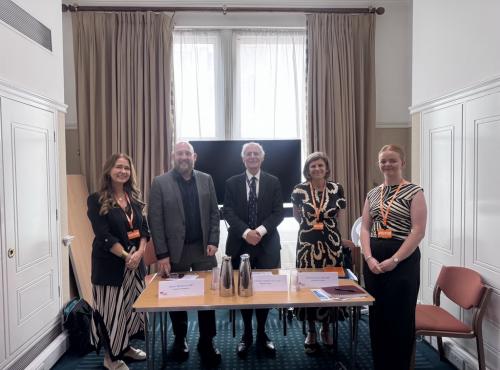APDIG host webinar on coronavirus and the challenges for the design sector
On Wednesday 15th April 2020, the All-Party Parliamentary Design and Innovation Group held a webinar and open discussion on how the design sector is responding to the ongoing economic and social crisis caused by COVID-19.
The webinar was chaired by Julia Bennett, Head of Research and Policy at the Crafts Council, and included contributions from a range of industry, academic and government bodies.
Deborah Dawton, Chief Executive of the Design Business Association (DBA), highlighted how the design sector, despite its complexities, had nevertheless responded rapidly to government advice on social distancing and economic lock down. She nevertheless noted concerns from firms about a need for Government to take stronger action on support for supply costs and rent, as well as support from utility companies.
Cat Drew, Chief Design Officer at the Design Council, noted that the Council had helped to spearhead the post-war economic and social recovery of the United Kingdom after the Second World War and that design could have a similarly important review in assisting with the post-COVID climate. She noted the four strands of “Design for Recovery” as set out in the Design Council's new strategy from 2020-2024. Designing Deeply to help meet the challenges facing society, Designing Disruptively to think radically and challenge perceptions, Designing Collaboratively' to meet systemic challenges by working across sectors, and Designing Democratically to help communities increase their own responses to design.
Finally, Dids Macdonald of Anti-Copying in Design (ACID) spoke about the work of organisations such as The Furniture Makers’ Company in supporting organisations and individuals, as well as the work small companies were doing to help provide beds and mattresses to the NHS, as well as providing access to equipment such as 3D printers. She then noted the impact of COVID-19 on intellectual property rights, with many designers bringing new ideas forward as a result of the change in working circumstances, but also the need for Government to respond proactively to the rise in fraudulent IP cases.
The webinar then moved onto contributions from the audience. Many members noted the impact of the crisis on creative higher education, with the closure of many universities having serious impact on teaching and engagement measures for design students, such as the cancellation of in-person End of Year Shows. Organizations such as CHEAD were playing a key role in helping to pool ideas and develop new collaborative measures across the sector.
Leila Al-Kazwin of the Department of International Trade affirmed the Government’s support for the design sector, noting that Whitehall was looking to the feature to ensure that the sctor could respond to export opportunities as global markets re-open. She also re-affirmed all members to respond to calls by the Department for new and innovative ways of engaging with new and emerging markets.
Participants also discussed the impact of COVID on the museum and gallery sector, as part of the APDIG’s engagement with the Contemporary Visual Arts Network on cultural exports, pressures on international students numbers, and the impact of the current crisis on Brexit and the UK’s future relationship with the European Union.
In closing, Jack Tindale reaffirmed the work of the APDIG in the coming months, including the letter to the Chancellor regarding immediate support for the design sector, as well as a longer term body of work aimed at engaging the wider community in areas such as trade, exports and international education.



